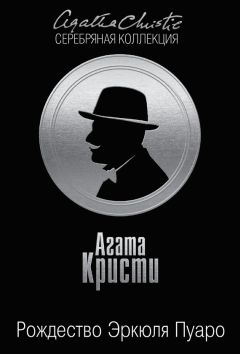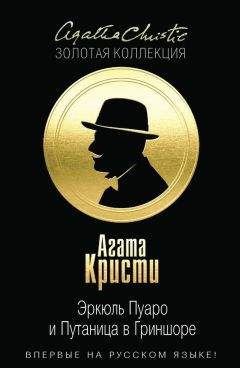Arthur Conan Doyle - Английский язык с Шерлоком Холмсом. Собака Баскервилей
enthusiasm [ɪnˈƟju:zɪæzm], require [rɪˈkwaɪǝ], company [ˈkʌmp(ǝ)nɪ]
I saw his dark face lit up with a boyish enthusiasm as he gazed about him. The light beat upon him where he stood, but long shadows trailed down the walls and hung like a black canopy above him. Barrymore had returned from taking our luggage to our rooms. He stood in front of us now with the subdued manner of a well-trained servant. He was a remarkable-looking man, tall, handsome, with a square black beard, and pale, distinguished features.
"Would you wish dinner to be served at once, sir?"
"Is it ready?"
"In a very few minutes, sir. You will find hot water in your rooms. My wife and I will be happy, Sir Henry, to stay with you until you have made your fresh arrangements, but you will understand that under the new conditions this house will require a considerable staff."
"What new conditions?"
"I only meant, sir, that Sir Charles led a very retired life, and we were able to look after his wants. You would, naturally, wish to have more company, and so you will need changes in your household."
"Do you mean that your wife and you wish to leave (вы имеете в виду, что вы с женой желаете уволиться; to leave — покидать; уезжать)?"
"Only when it is quite convenient to you, sir (только если это достаточно удобно для вас, сэр)."
"But your family have been with us for several generations, have they not (но ваш род живет /рядом/ с нашим /уже/ несколько поколений, не так ли)? I should be sorry to begin my life here (мне бы не хотелось начинать свою жизнь здесь) by breaking an old family connection (с разрыва старинных семейных связей)."
I seemed to discern some signs of emotion (мне показалось, что я разглядел некоторые признаки волнения) upon the butler's white face (на бледном лице дворецкого).
"I feel that also, sir, and so does my wife (так же считаем и мы с женой, сэр). But to tell the truth, sir (но сказать по правде), we were both very much attached to Sir Charles (мы оба были очень привязаны к сэру Чарльзу; to attach — прикреплять), and his death gave us a shock (его смерть была для нас ударом; to give — давать; быть причиной) and made these surroundings very painful to us (и сделала все окружающее очень тягостным для нас). I fear that we shall never again be easy in our minds at Baskerville Hall (боюсь, мы никогда снова не будем /чувствовать/ в душе покой, /находясь/ в Баскервиль-холле)."
"But what do you intend to do (но что вы намерены делать)?"
"I have no doubt, sir, that we shall succeed (я не сомневаюсь, сэр, что мы преуспеем; to succeed — следовать /за кем-либо/; иметь успех) in establishing ourselves in some business (открыв какое-нибудь дело; to establish a business — учредить торговое предприятие; to establish oneself — устроить свое положение /например, в обществе/). Sir Charles's generosity has given us the means to do so (щедрость сэра Чарльза дала нам средства, чтобы это осуществить). And now, sir, perhaps I had best show you to your rooms (а сейчас, сэр, возможно, было бы лучше, /если/ бы я показал вам ваши комнаты)."
several [ˈsevr(ǝ)l], surround [sǝˈraund], generosity [ˌdʒenǝˈrɔsɪtɪ]
"Do you mean that your wife and you wish to leave?"
"Only when it is quite convenient to you, sir."
"But your family have been with us for several generations, have they not? I should be sorry to begin my life here by breaking an old family connection."
I seemed to discern some signs of emotion upon the butler's white face.
"I feel that also, sir, and so does my wife. But to tell the truth, sir, we were both very much attached to Sir Charles, and his death gave us a shock and made these surroundings very painful to us. I fear that we shall never again be easy in our minds at Baskerville Hall."
"But what do you intend to do?"
"I have no doubt, sir, that we shall succeed in establishing ourselves in some business. Sir Charles's generosity has given us the means to do so. And now, sir, perhaps I had best show you to your rooms."
A square balustraded gallery ran round the top of the old hall (широкая галерея, огражденная перилами, проходила по всему верху старинного холла; square — квадратный; широкий; balustrade — парапет, перила; to run — бежать; тянуться; round — вокруг; на всем протяжении), approached by a double stair (на нее вела лестница, /состоящая/ из двух пролетов; double — двойной, состоящий из двух частей). From this central point two long corridors extended the whole length of the building (от этой центральной точки = от этого места по всей длине здания тянулись два длинных коридора), from which all the bedrooms opened (куда выходили все спальни; to open — открывать; начинаться). My own was in the same wing as Baskerville's (моя собственная была в том же крыле здания, что и Баскервиля) and almost next door to it (и почти по соседству; next door — рядом, по соседству). These rooms appeared to be much more modern (эти комнаты оказались намного более современными) than the central part of the house (чем центральная часть здания), and the bright paper and numerous candles did something to remove the sombre impression (а светлые обои и множество свечей помогли немного избавиться от гнетущего впечатления; to do — делать; оказывать /услугу/; to remove — удалить, снять) which our arrival had left upon my mind (которое наш приезд у меня оставил = которое у меня создалось после приезда сюда; mind — разум; настроение).
approach[ǝˈprǝutʃ], almost [ˈɔ:lmǝust], numerous [ˈnju:m(ǝ)rǝs]
A square balustraded gallery ran round the top of the old hall, approached by a double stair. From this central point two long corridors extended the whole length of the building, from which all the bedrooms opened. My own was in the same wing as Baskerville's and almost next door to it. These rooms appeared to be much more modern than the central part of the house, and the bright paper and numerous candles did something to remove the sombre impression which our arrival had left upon my mind.
But the dining-room which opened out of the hall (но обеденный зал, которым оканчивался холл) was a place of shadow and gloom (был темным и мрачным местом; shadow — тень; полумрак). It was a long chamber with a step separating the dais where the family sat (это была длинная комната со ступенькой, отделяющей помост/возвышение, где сидели хозяева) from the lower portion reserved for their dependents (от более низкой части, предназначенной для их вассалов; dependent — зависимый, подвластный). At one end a minstrels' gallery overlooked it (в одном конце возвышались хоры для менестрелей; gallery — галерея; хоры; to overlook — обозревать; возвышаться /над местностью/). Black beams shot across above our heads (черные балки перекрещивались над нашими головами; to shoot — стрелять; тянуться, простираться; across — поперек; крест-накрест), with a smoke-darkened ceiling beyond them (а за ними /виднелся/ потемневший от дыма потолок). With rows of flaring torches to light it up (ряды горящих факелов, освещавшие это /помещение/), and the colour and rude hilarity of an old-time banquet (колорит и грубое веселье пиршеств давних времен), it might have softened (возможно /тогда/ смягчали /впечатление/); but now, when two black-clothed gentlemen sat in the little circle of light (но сейчас, когда двое одетых в черное джентльмена сидели в маленьком круге света) thrown by a shaded lamp (отбрасываемого лампой с абажуром), one's voice became hushed and one's spirit subdued (голос каждого стал тихим, а настроение подавленным).
shadow [ˈʃædǝu], portion [ˈpɔ:ʃ(ǝ)n], banquet [ˈbæŋkwɪt]
But the dining-room which opened out of the hall was a place of shadow and gloom. It was a long chamber with a step separating the dais where the family sat from the lower portion reserved for their dependents. At one end a minstrels' gallery overlooked it. Black beams shot across above our heads, with a smoke-darkened ceiling beyond them. With rows of flaring torches to light it up, and the colour and rude hilarity of an old-time banquet, it might have softened; but now, when two black-clothed gentlemen sat in the little circle of light thrown by a shaded lamp, one's voice became hushed and one's spirit subdued.
A dim line of ancestors, in every variety of dress (полутемная череда предков в самых различных одеждах; every — каждый; всевозможный), from the Elizabethan knight to the buck of the Regency (от кавалера елизаветинских /времен/ до франта /времен/ Регентства; knight — рыцарь; кавалер; buck — самец животного; щеголь /уст./), stared down upon us and daunted us by their silent company (со /стен/ наблюдали за нами, удручая своим молчаливым обществом; to daunt — обуздывать; приводить в уныние, удручать). We talked little (мы говорили мало), and I for one was glad when the meal was over (и что до меня, то я был очень рад, когда ужин закончился; for one — например; что касается; meal — еда; прием пищи) and we were able to retire into the modern billiard-room and smoke a cigarette (и мы смогли перейти в современную бильярдную и выкурить папиросу).
"My word, it isn't a very cheerful place (да уж, не очень-то веселое место; my word — даю слово, клянусь честью; видит Бог)," said Sir Henry. "I suppose one can tone down to it (полагаю, ко всему этому можно привыкнуть; to tone — придавать желательный тон; гармонировать), but I feel a bit out of the picture at present (но в данный момент я чувствую себя немного лишним здесь; to be out of the picture — не соответствать ситуации; быть не у дел, ср.: I seem to be out of the picture. What's going on here? — Я уже отстал от жизни. Что здесь творится?). I don't wonder that my uncle got a little jumpy (не удивительно, что у дяди пошаливали нервы; jumpy — нервный, неспокойный; to jump — прыгать, скакать; вскакивать, подпрыгивать, подскакивать /от возбуждения, нервного шока/; вздрагивать) if he lived all alone in such a house as this (если он жил совершенно один в таком доме, как этот). However, if it suits you (так вот, если вас это устроит = если вы не против), we will retire early to-night (/давайте/ сегодня ляжем спать пораньше; to retire for the night — ложиться спать), and perhaps things may seem more cheerful in the morning (и, может быть, утром все покажется более жизнерадостным)."
ancestor [ˈænsɪstǝ], cheerful [ˈtʃɪǝf(ǝ)l], suit [sju:t]
A dim line of ancestors, in every variety of dress, from the Elizabethan knight to the buck of the Regency, stared down upon us and daunted us by their silent company. We talked little, and I for one was glad when the meal was over and we were able to retire into the modern billiard-room and smoke a cigarette.
"My word, it isn't a very cheerful place," said Sir Henry. "I suppose one can tone down to it, but I feel a bit out of the picture at present. I don't wonder that my uncle got a little jumpy if he lived all alone in such a house as this. However, if it suits you, we will retire early to-night, and perhaps things may seem more cheerful in the morning."
I drew aside my curtains before I went to bed (прежде чем лечь в постель, я раздвинул шторы; to draw — тащить, тянуть; aside — в сторону; to go to bed — ложиться спать) and looked out from my window (и выглянул из окна). It opened upon the grassy space (оно выходило на газон; grassy — травянистый; покрытый травой; space — пространство; территория) which lay in front of the hall door (находящийся перед парадной дверью). Beyond, two copses of trees moaned and swung in a rising wind (позади /него/ две рощицы молодых деревьев стонали и раскачивались под порывами ветра; copse — рощица/поросль; to swing; rising wind — усиливающийся ветер). A half moon broke through the rifts of racing clouds (серп луны выглядывал сквозь просветы несущихся /по небу/ облаков; to break through — прорваться, пробиться). In its cold light I saw beyond the trees a broken fringe of rocks (в его холодном свете за деревьями я увидел неровный край скал; broken — сломанный; неровный, извилистый) and the long, low curve of the melancholy moor (и длинную, /лежащую/ внизу, линию мрачных болот; low — низкий уровень, низина; curve — кривая линия). I closed the curtain (я задернул штору), feeling that my last impression was in keeping with the rest (чувствуя, что последнее мое впечатление не отличается от остальных = от первого; to be in keeping with smth. — согласовываться, гармонировать с чем-либо).




